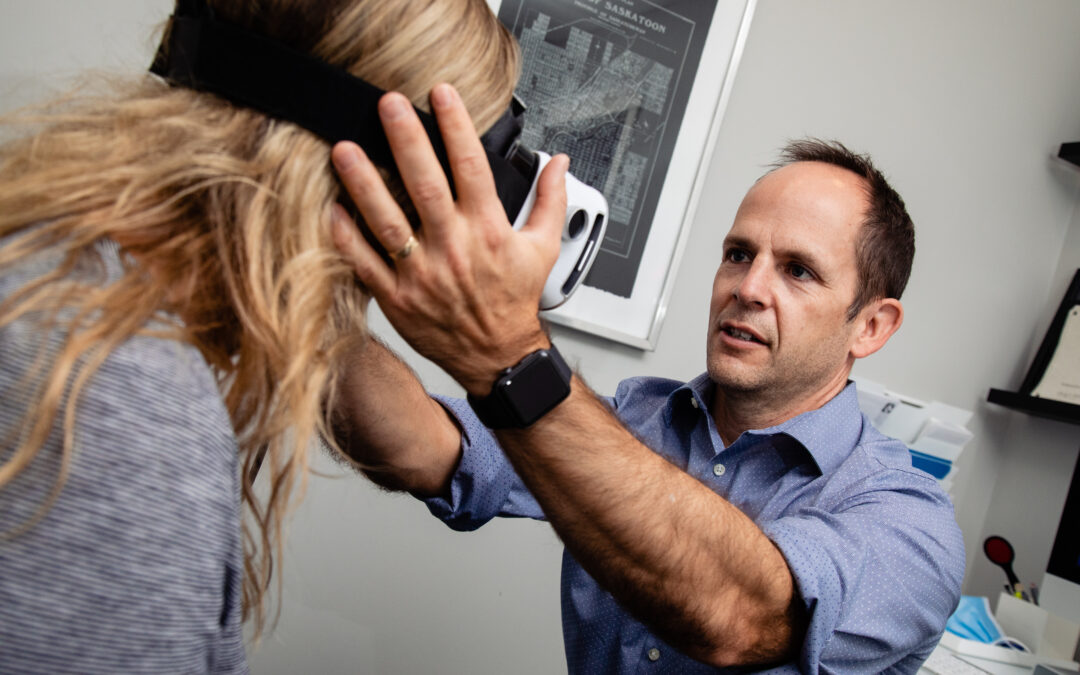If you’re experiencing dizziness, we know how frustrating and debilitating it can be. One common question we receive at North 49 when someone books their Vestibular Assessment is, “How will I feel after my initial Vestibular Assessment?” The answer can vary because dizziness has different causes, and everyone reacts differently. However, we’ll provide some insights based on our experiences and research to help set your expectations.
The Range of Reactions
After your initial Vestibular Assessment, you will either feel better, worse, or the same. Here’s a closer look at the potential outcomes for the two most common cause of dizziness that we see being BPPV and inner ear infections.
Reactions associated with BPPV:
- Feeling Worse: About 12% of patients might feel mildly worse immediately after their Vestibular Assessment. The best way to describe it is they feel a bit “off”, but they are able to carry on with their regular daily activities. Anecdotally, even less than that experience a temporary worsening of symptoms that affects the rest of their day and they often need to sit for a while before they leave the clinic. That is the vast minority. Feeling worse can happen because the movements in the assessment stimulated your inner ear, but it’s important to remember that most patients with BPPV experience a resolution of symptoms within three sessions.
- Feeling the Same or Better: Many patients feel the same and some even better right after their Vestibular Assessment. While it’s always great when this happens, it’s not something we can guarantee for everyone.
Reactions associated with an inner ear infection:
For those experiencing dizziness due to an acute inner ear infection, we usually proceed with caution during the initial assessment. Our goal is to avoid provoking your symptoms too much and the good news is that the prognosis is excellent. By your second visit, typically a few days later, you should be feeling significantly better. For more information on what to expect with your inner ear infection check out this 4min video.
Immediate Aftermath and Driving Home
Most patients do not feel significantly different immediately after their initial assessment. Occasionally, someone might need to sit for a bit to let things settle before heading home. In rare cases, a patient might feel too dizzy to drive, but this is uncommon. We used to advise everyone to have a ride home after their Vestibular Assessment, but over the years, we’ve found that most people if they drove to the appointment are fine to drive themselves home.
Handling Anxiety and Nausea with the Vestibular Assessment
For those who are particularly motion-sensitive or anxious, we sometimes need to stop or modify the Vestibular Assessment. If anxiety is a major factor, we might recommend taking your anxiety medication beforehand. Reassurance goes a long way, and we usually can proceed further in the next session.
Occasionally, someone might vomit during the Vestibular Assessment. This can happen suddenly after a positional change or gradually as the appointment progresses. If you start to feel nauseated, it’s important to let us know immediately so we can adjust accordingly.
The Bottom Line on Outcomes
Yes, you can feel worse after your initial Vestibular Assessment, but this is the exception rather than the rule.
If you’re experiencing dizziness, don’t hesitate to reach out to us at North 49. Give us a call at 306-343-7776 or book an assessment through our website online platform. We’re here to help determine the cause of your dizziness with a comprehensive Vestibular Assessment and work with you to take steps to address it so it does not impact your day.

